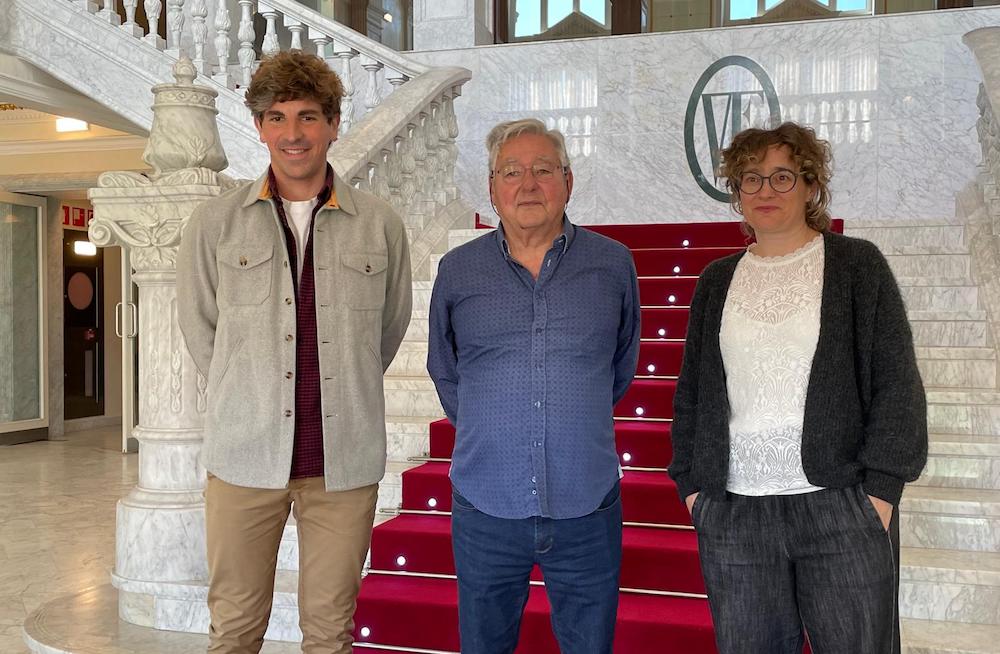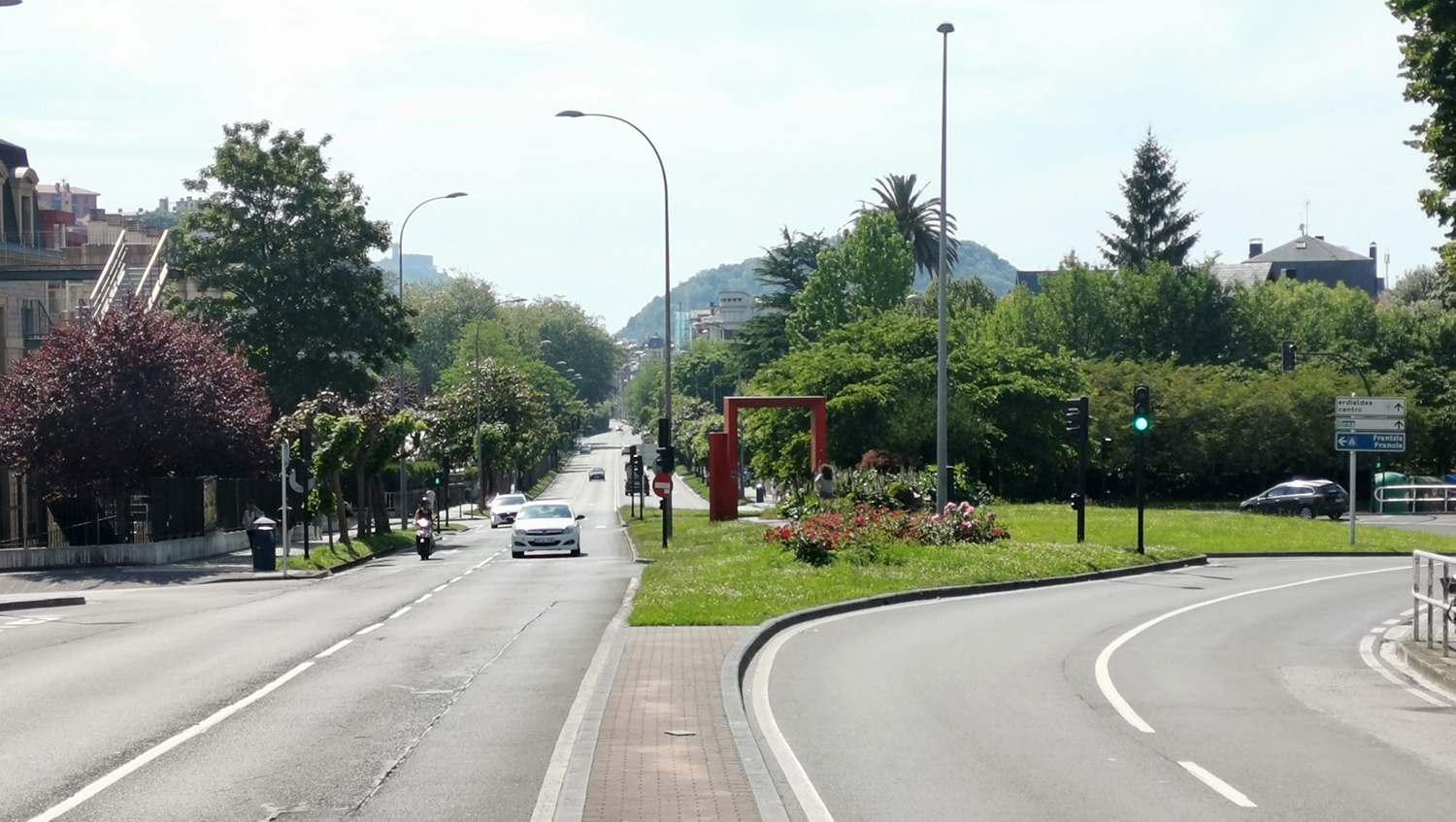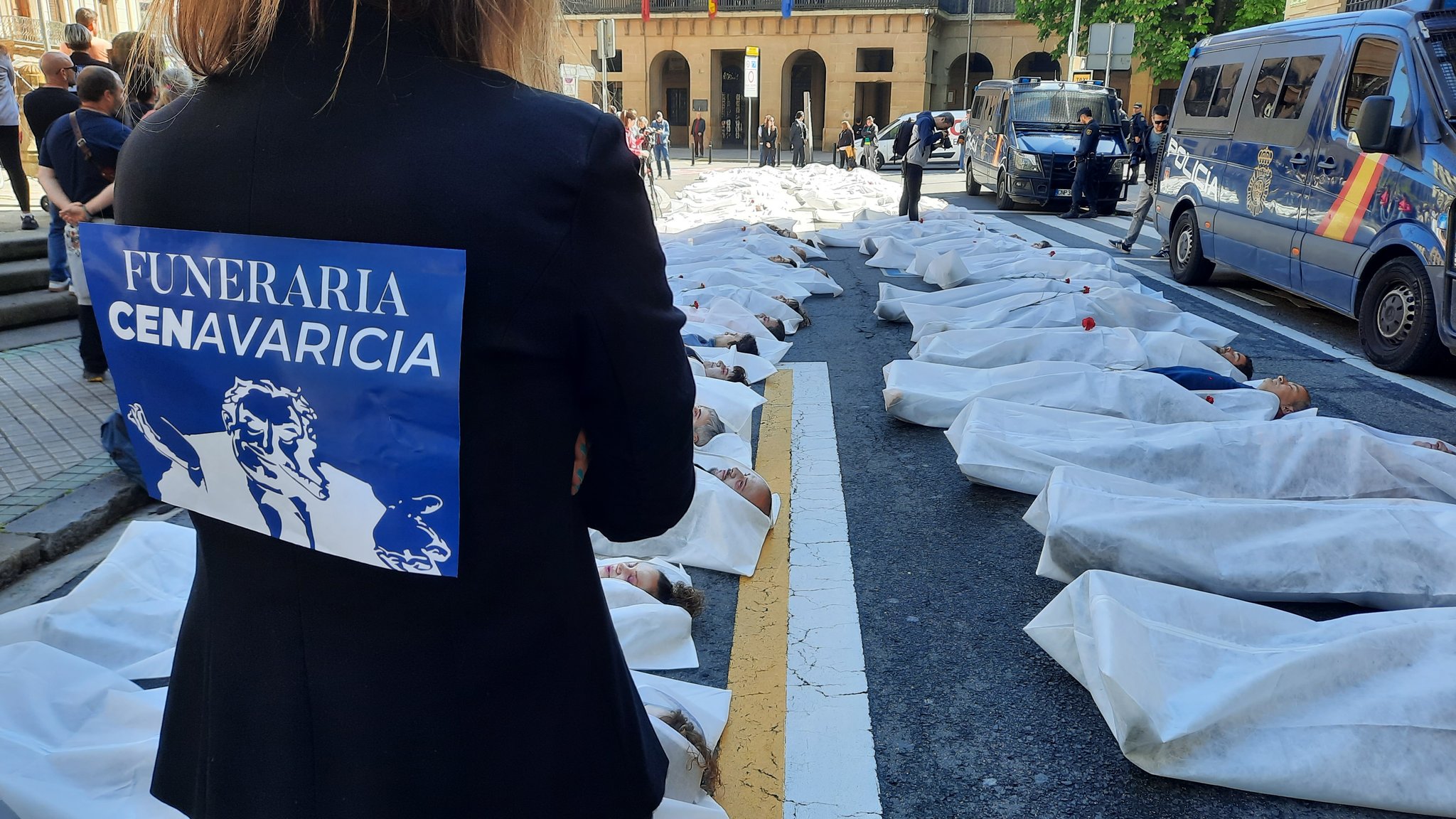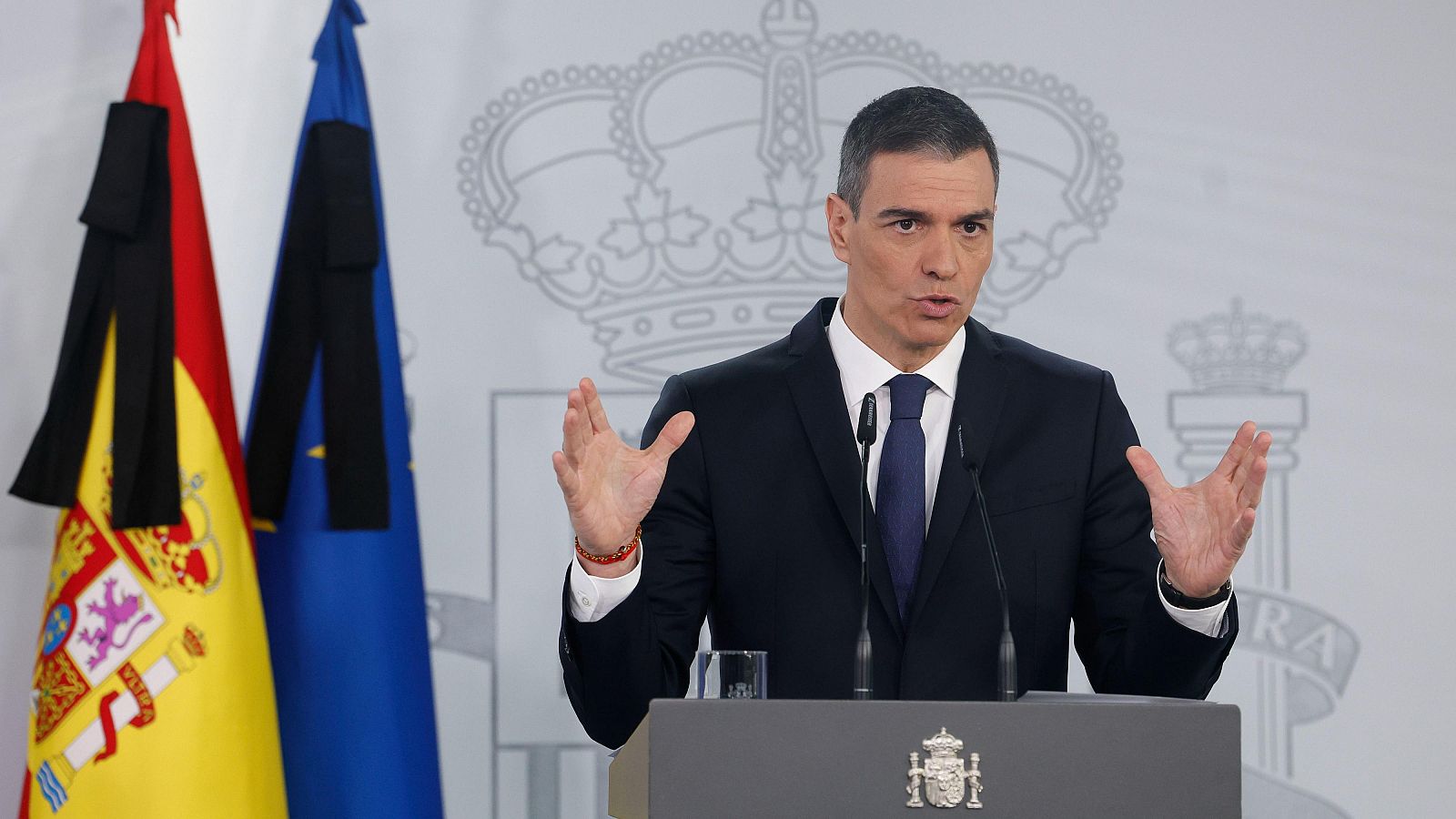Euskera, advertising, segregation and secularism are launched by the actors
- Politicians have heard 46 appearances in the Basque Parliament on the Basque Education Act. The aim was to make contributions and amendments to the bill and the agents have used it to convey as many criticisms as contributions: advertising, Basque, laicism, gratuity and segregation.

Education counselor Jokin Bildarratz has announced that the Basque Country Education Act will be passed in this legislature. The bill has already been tabled and politicians have had the opportunity to seek the opinion of the agents before Parliament’s Committee on Education. In the next phase, the politicians themselves will be able to take Parliament and vote on the amendments they wish to address the bill, probably from September onwards.
Euskera
The role of Euskaldunisation in the law has been played by many actors, but the Council of Euskalgintza has made the analysis more detailed and has proposed 33 amendments. First, it calls for the definition of the “Euskera-centered system” to which the law refers, so that the Basque language is truly a general language of teaching and learning. In this regard, EHIGE has criticized that “a general framework of languages is not defined, each center will be able to decide what language the classes will teach”, and has claimed that this general linguistic framework should be a model of immersion.
The Council stresses the need to ensure external evaluation and to focus the Basque curriculum instead of delegating to teachers the evaluation of the Basque levels of students (including the Confederation of Ikastolas) and recommends that in the socio-linguistic environment more be given to those with less Basque and that there be responsible for linguistic standardization in the management teams of the centres.
In relation to the competence in Euskera of teachers, the law aims to promote the training of teachers to reach the level C1, but the Council has raised the barrier to the requirement of training in Euskera for teachers and knowledge of Basque culture.
One of the most important steps of the law in this area has been questioned by Harro Topagunea about the Basque Public School: at the end of compulsory education the Basque Country will require students level B2, but Topagunea has denounced that this request will not condition the obtaining of the degree. In addition, a number of actors have criticized the fact that the law does not guarantee sufficient resources to achieve B2.
At the end of compulsory education, students will be required to graduate B2 from Euskera, but Topagunea denounces that this request will not condition the achievement of a degree.
Advertising
The representative of the Christian School has claimed in Parliament that the new law must be of all. The creation of the Basque Public Educational Service (which includes the public and concerted network and which is financed 100% with public money if certain conditions are met) has also been considered a major step forward by the Ikastolas Confederation. However, in the definition of this service the ikastolas have seen a lack of concretion: “All centers, regardless of ownership, must have the capacity to act on an equal footing.” And they propose: “The law must pave the way for experimentation with models of shared ownership.”
At the other end are the returning agents of the Basque public school, who have participated in Parliament these days. They reject the Basque Public Educational Service model, arguing that it equips the public network with the private network and that the public network should be prioritized. The Federation of Associations of Fathers and Mothers EHIGE and the Harro platform of the Basque Public School of Urola Kosta have decided to promote a publication process and have requested the development of a legal framework for the autonomy of the public school, the extension of the perimeter of the public school and the reduction of the oversupply of concerted centers.
The representatives of the Basque Country Eskola Publikoa Harro opened the conference: “We have no proposals to amend the Education Act, we call for a radical change. This project is for the private and against the public; it does not take steps in Euskaldunization; it talks about participation but there is no improvement; the measures to deal with segregation were also included in the previous legislation, we fear that they will become excuses to give more money to the private network; the approval of the law opens the door to the reduction of the public network”.
Inclusive School: "It seems that gratuity is linked to the funding received by the center, when other laws have said that gratuity is compulsory, without any requirement"
Free
Gratuity is a very related issue to the previous point, because the law says that the concerted centres that are part of this public service will finance it 100% with public money and the centres will not be able to collect fees. The Federation of Ikastolas and Kristau Eskola express their concern. The Federation of Ikastolas agrees with the principle and objective of gratuitousness, “but there is no mention of how to carry out this gratuity or the resources to be used, it will not be possible to guarantee gratuitousness until all the resources have been processed”.
In the same vein, according to the Christian School, “effective gratuitousness will only be possible with the total financing of the concerted, with a total and real financing that allows not to collect fees”.
This condition was contrary to the attendance of the representative of the Inclusive School: “It seems that gratuity is linked to the budget and the funding received by the center, when other laws have previously stated that gratuity is mandatory, without any requirement.”
EHIGE calls for clarification “what will be financed when it is said that the concerted centres will be fully funded”.
Christian School: "We believe that religious teaching in schools today is not an indoctrination, but a fundamental instrument to enrich the person. The role of centres is not to guarantee secularity"
Laicity
The Christian School has focused on secularism in its appearance. He has previously stressed the importance of the Christian School “in the development of the identity of Euskal Herria, in the active role of the Basque Country and the Basque culture”, providing data: The Kristau Eskola Association brings together 75 institutions, 123 schools in the CAPV, 110,000 pupils, 90,000 families and about 7,000 workers. 47% of the concerted centres are Christian schools in the Autonomous Community of the Basque Country.
“We believe that religious teaching in schools today is not an indoctrination, but a fundamental instrument for enriching the person,” the Christian School said, and criticized the following paragraph of the law: “The centres providing the Basque educational service must guarantee secularity”. In the words of the representative of the Christian Schools, “the task of the centres is not to guarantee secularism. The reference to secularity attributed to education should be specified. We are committed to a positive laicism.”
Harro has moved in his speech a different perspective from the Basque Public School: “In religious centers, we still pray today in class hours; secularism is not only to look at the respect of each student’s belief, that is minimal, that is not to be inquisitive, it is secularism that all beliefs receive the same respect and that confessional practices are outside the center”.
The Basque public educational service model has long been implemented by Catalonia and is the fourth most segregated community in the Spanish State. In other words, only the creation of the service does not guarantee anything.
Segregation
The segregation of students has also been one of the topics discussed. The representative of Save The Children made one of the most comprehensive analyses in his speech:
“Since the first draft we see progress, even in the decrees and orders already being implemented by the Department of Education: the reservation of places has been extended, the vulnerability rate has been established, the administrative unit that will control gratuity has been mentioned, but at the same time we have seen that oversupply of places has been maintained (and what oversupply means must be better defined), the double list is not working well (the reservation of places a In short, “we share the objectives of the law, but we do not see that there are enough measures or instruments to achieve them”.
He stressed that the Basque public educational service model has been established for a long time by Catalonia, “and after more than ten years, it is the concerted in Catalonia that charge the most students in the Spanish state, the fourth community with the highest segregation”. In other words, only the creation of the service and the requirement of principles of belonging to this service does not serve to overcome segregation, warns. In addition, “as the law is drafted, we understand that all those concerted automatically become part of the service, so a transitional phase is required”. It considers it essential to adapt the conditions required to be part of this service, “eliminating the very mention of the existence of social interest”. “There is a need for more precision, but simply to say to the concerted that they comply with the law already in force,” he gives a concrete example: a percentage of vulnerable students should be requested from the schools.
“We believe that what socio-economic vulnerability is better defined. It is not included in the bill, nor is it specified in the decree of approval or in the precept. And it is very important because it affects the right of many families in the admission process.”
Finally, it proposes the creation of zonal planning and schooling commissions that would be responsible to the agents of the region. “And we want to make it clear that, when the birth rate is falling, it is impossible to think of a public service in which coexistence between public and concerted centres is the prime priority, if the base is the fierce competition to attract the remaining students.”
Save the Children: "It is impossible to think of a public service in which coexistence between public and concerted centres prevails, if the basis is the savage competition to attract the remaining students"
In the field of segregation, it is also necessary to take into account the appearance made on behalf of the Inclusive School and Zubiak Eraikiz, requesting a unitary and unique registration office, to make public and take into account the Educational Complexity Index of each center ("to know if a center is a ghetto or a bubble, if it has balance …"), to regulate well the offer of inclusion “We have just seen, the registration is based on the data that each one has given, which can give rise to the picaresque when one knows what it is best to put in to adapt it in one place or another.”
The contract programme under the law has strongly criticised: “We asked for contracts programs of vulnerability and inclusion, not innovation, because it is proven that it is very risky to compete one another based on innovation projects, without focusing the additional resources for inclusion.”










